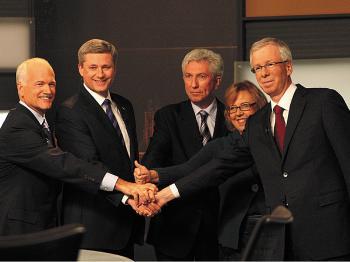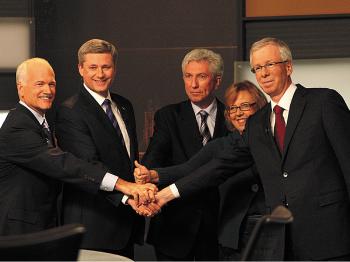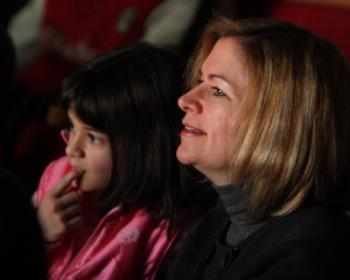“I have been following these debates since 1968 and it is the first time that all the leaders have joined forces and agreed on the same critiques of one leader, in this case, Harper,” said Denis Monière, a professor of politics at the Université de Montréal in an interview after the French-language leaders’ debate Wednesday night.
It was a safe bet that Harper would be the key target in the debate, given that his party is polling well in front of the four main opposition parties, each of whom reside further left on the political spectrum. But the extent of the derision thrown his way may have caught even Harper off guard.
“It is really surprising how Harper did not generally react firmly against all the attacks the four other leaders were levelling at him,” said Monière. “On the topic of criminal justice he reacted more energetically, but that was almost it.”
“I think he wanted to play the role of a different prime minister, someone who was mastering the situation. But for common people, when someone is accused that much and he doesn’t react—as he did—it sends a message that he might be wrong or guilty of what he was accused.”
For Prof. Monière, the winners in the debate were Liberal Leader Stephane Dion, who came across stronger than usual, and Bloc Quebecois Leader Gilles Duceppe, who spoke passionately to French Quebecers.
He also said with five leaders and eight topics, the debates became “cacophonous,” so much so that at one point Mr. Dion even called Mr. Layton Mr. Duceppe.
The dense debate also lacked substance, he argued, particularly when it came to the opening topic, the economy.
“Many questions and answers were out of context,” he said. “The public didn’t learn anything from that.”
Others agreed.





